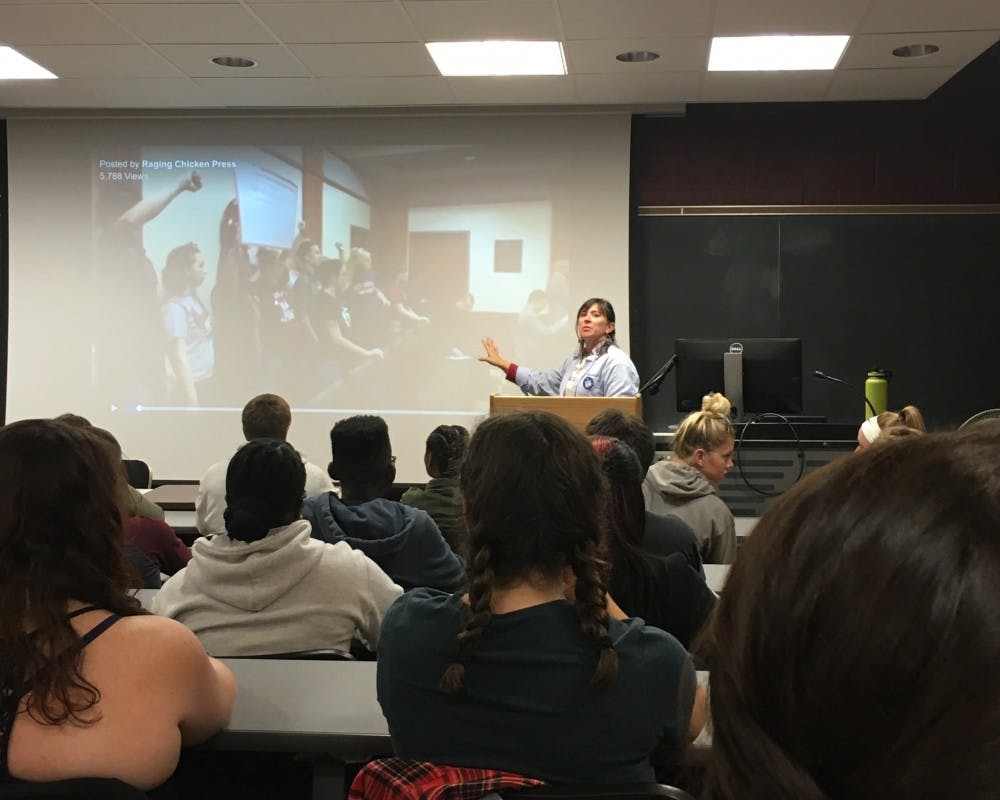Nearly every seat was filled in a Shippensburg University lecture hall as students convened to discuss the possibility of a faculty strike throughout the state system universities.
Held in SU’s Dauphin Humanities Center on Oct. 12, SU faculty members belonging to the Association of Pennsylvania State College and University Faculties (APSCUF) hosted an information session to answer questions about how SU students would be impacted if a strike was put into action.
APSCUF SU Chapter President Kara Laskowski began by addressing the misconception that faculty members had turned down a significant raise offered by state system representatives.
“What they offered us was a little bit of a raise but a whole lot of other stuff in return,” Laskowski said. “Even if they offered us a huge raise to sell out our students we’d still be at this point.”
One of the ways the faculty is advocating for its students, Laskowski said, is by protesting the overuse of temporary professors on college campuses. Laskowski said that although these professors are excellent educators, once they leave SU it is difficult for students to remain in contact for letters of recommendation, or advice on internships or research projects.
SU faculty members in attendance at the session encouraged students to reach out to SU President George “Jody” Harpster and representatives of the state system with questions about the status of campus events and services. Harpster has since emailed students and addressed some of these issues.
Laskowski said she has not heard of any faculty members that will not be going on strike. APSCUF remains committed to sitting at the negotiation table until the strike begins or a deal is made, she said.
“I’m in support of [the strike] because I respect the professors’ decisions — if 93 percent voted in support, then I think the answer’s obvious,” SU student Alex Dishong said.
Although Laskowski agreed with students who believe a strike would not be ideal, she said that SU’s faculty will do whatever it takes to receive proper recognition from the state system.
“We do not have any interest in not being in the classroom, but when someone is trying to steamroll us to get to you, we’re going to set an example and say ‘no,’” Laskowski said. “This whole thing has been about quality education for us the whole way through.”




The Slate welcomes thoughtful discussion on all of our stories, but please keep comments civil and on-topic. Read our full guidelines here.